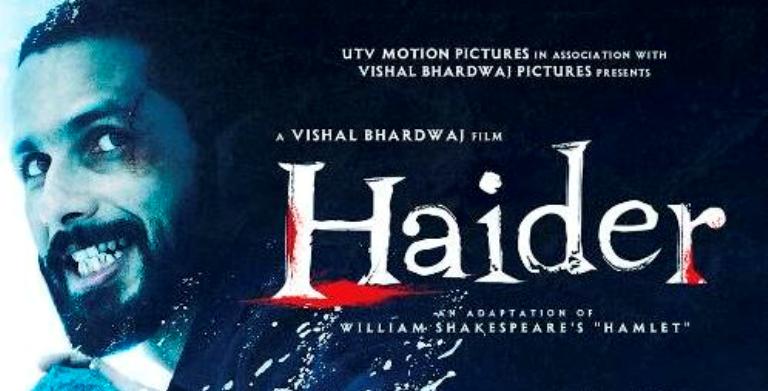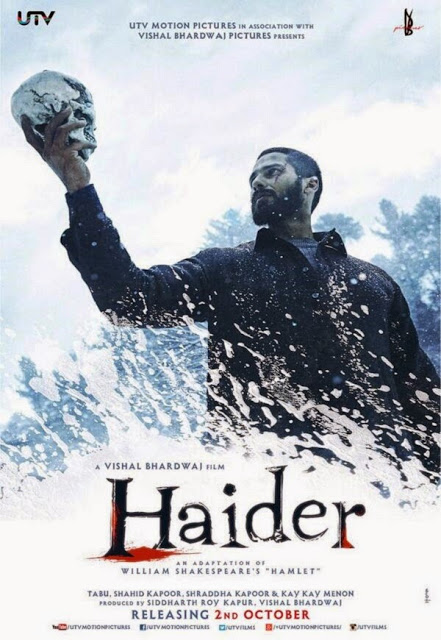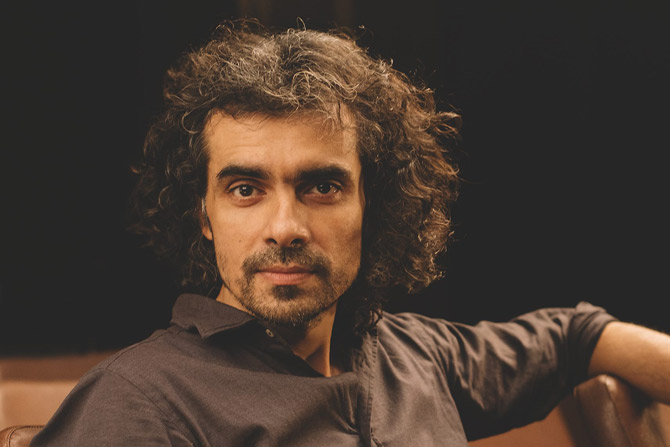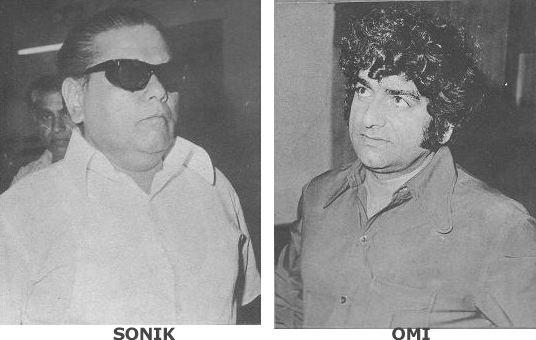Summary: Vishal Bhardwaj’s adaptation of William Shakespeare’s ‘Hamlet’, Haider – a young man returns home to Kashmir on receiving news of his father’s disappearance. Not only does he learn that security forces have detained his father for harboring militants, but that his mother is in a relationship with his very own uncle. Intense drama follows between mother and son as both struggle to come to terms with news of his father’s death. Soon Haider learns that his uncle is responsible for the gruesome murder, what follows is his journey to avenge his father’s death.
Haider is the latest offering from the renowned Indian filmmaker Vishal Bhardwaj. Co-written by Basharat Peer and Bhardwaj himself, Haider is the third and final chapter in Bhardwaj’s Shakespeare trilogy. Having already made successful adaptations of Macbeth (Maqbool, 2003) and Othello (Omkara, 2006), Bhardwaj was left with the choice of adapting either King Lear or Hamlet to complete his trilogy. He opted for the latter because of the presence of a strong sexual undercurrent in the source material—a motif that harks back to the first two films of the trilogy. While Haider stars Shahid Kapoor in the eponymous role, Tabu portrays the role of his mother (modeled upon Hamlet’s mother Gertrude) and Kay Kay Menon essays the role of his uncle (modeled upon Claudius who, in the play, murders his own brother and Hamlet’s father, King Hamlet, and subsequently usurps the throne, marrying Gertrude). The role of Haider’s lover is played by Shraddha Kapoor (based on Ophelia’s character in Hamlet). Irrfan Khan, who had essayed the titular role in Maqbool, makes a cameo appearance. Haider’s support cast includes renowned character actors like Kulbhushan Kharbanda, Ashish Vidyarthi, Narendra Jha, Lalit Parimoo, and Aamir Bashir.
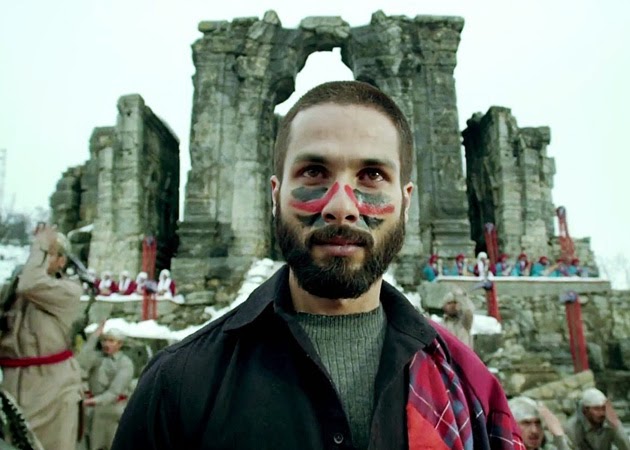
The uncanny choice of Kashmir of the 1990s—a treacherous avenue of unparalleled beauty and unfathomable danger where people just disappear, never to return again—as the movie’s backdrop proves to be a stroke of pure genius as it helps Bhardwaj in orchestrating an enchanting mise-en-scène that elevates an otherwise sprawling orgy of histrionics (what else can one possibly say of William Shakespeare’s Hamlet?) to the realms of realism. While the exquisite end product that’s on offer here succeeds in capturing the essence of the Bard’s haunting saga of love, revenge and madness, it doesn’t, not even for a second, seem to be missing Bharadwaj’s signature earthy style, which further adds to the movie’s verisimilitude. While Haider is mostly true to Hamlet in essence, there is one striking contrast. While the latter depicts vengeance as the only means left for redemption, the former, despite glorifying the human desire for revenge, ultimately preaches forgiveness as the path to eternal salvation. It is also one of the underlining differences between the Western and the Eastern philosophies.
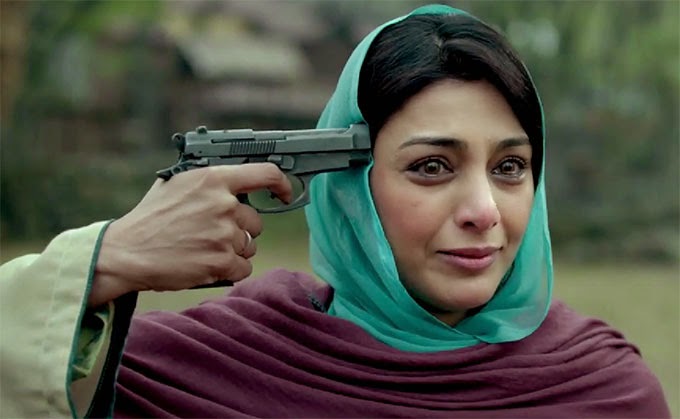
By the mid-1990s, Kashmir had taken the form of a spewing volcano, a ticking time bomb ready to go kablooey at any given moment. The terrorist insurgency in the Kashmir valley had started to pose a serious threat to India’s sovereignty and the army had to be given a carte blanche so as to guard the country against any possible threat from both within and as well as outside the country. The people of Kashmir started seeing the growing military activity in the region as a violation of their basic rights. The separatist leaders saw this as a golden opportunity to galvanize the masses against the state and started adding fuel to fire as the valley got encompassed in a miasma of mistrust. Although, the situation has improved significantly over the last decade, a lot of work still needs to be done before the conflict can be fully resolved. Nonetheless, Haider, which is completely filmed in Kashmir, ends up doing some serious marketing for the 21st century Kashmir, which is slowly returning to its pristine, blissful state. Bhardwaj’s film also leaves a strong message not only for people of Kashmir but for all humanity that nothing can be gained through revenge and in the absence of trust.
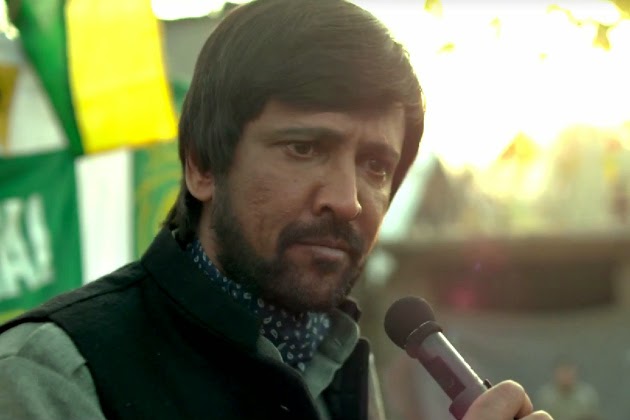
Make no mistake! Adapting a work of Shakespeare is no child’s play. Even the most experienced campaigners can falter if their ambition gets the better of them. The key to adapting any major work of literature is to be wary of one’s limitations. Haider is far from being called a perfect adaptation of Hamlet. But, Bhardwaj, to his credit, gets the job done. There are moments of sheer brilliance but there is also a lot of drivel that could have easily been done away with. Haider has all the makings of an epic but it faces some serious pacing issues towards the second half. Also, the narrative appears to be sketchy at some places. But, that’s the price that one must be willing to pay for one’s ambition. Perhaps, succumbing to one’s creative urges is more important to an artist like Bhardwaj than to seek perfection.

One of the main themes of Hamlet is chaos. This chaos is most evident in the play’s central character who, in many ways, is a personification of confusion and duality. Prince Hamlet’s highly complex, fascinating albeit bizarre nature makes his a singular caricature in all literature—a distorted persona endowed with contradictory traits that fade the lines which separate virtue and vice, heroism and villainy, and sanity and madness. In Haider, we get to see shades of their previous collaboration, Kaminey (2009), as Vishal Bharadwaj and Shahid Kapoor grapple with the endless contradictions that define Hamlet’s multidimensional character. Although, Kapoor appears to be struggling at some places, he manages to stretch beyond his normal thresholds, and it’s heartening to see that his efforts don’t go unrewarded.
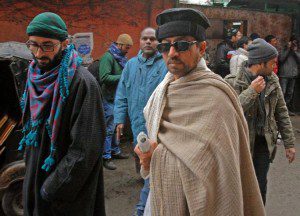
Oedipus complex is another major theme that runs through Hamlet. Coined by Sigmund Freud, the founding father of psychoanalysis, the term Oedipus complex denotes the subconscious emotions and ideas that focus upon a child’s desire to have sexual relations with the parent of the opposite sex. In Haider, as one expects from a filmmaker whose target audience is primarily conservative, the syndrome is both latent and nuanced in comparison to the play wherein the Prince’s attraction towards his mother can be interpreted at both physical and psychological levels. While a lesser filmmaker could have easily botched it up, Bhardwaj still manages to pull it off neither appearing too direct nor too cryptic. And, its efficacy is testified by the fact that after having watched the movie, one just can’t help but wonder what was it that haunted Haider more: His father’s death or his mother’s closeness to his uncle?

Haider not only serves as a worthy adaptation of Hamlet, but it also proves to be a powerful socio-political commentary on Kashmir of the 1990s. Without the Kashmir angle, Haider would have appeared more empty and existential, with the Shakespearean characters merely playing their parts in a bid to reach the end of the trail. But, with Kashmir as its backdrop, it almost comes across as a propaganda film that aims to serve as a bitter reminder of our not too distant past. This critic is reminded of Salman Rushdie’s 2005 novel, “Shalimar the Clown,” which presents the heart-breaking tale of a naïve Kashmiri tightrope artist who ends up as a cold-blooded assassin after coming in contact with terrorist groups in Afghanistan. Like Rushdie’s novel, Haider is a warning of what can possibly become of a country’s youth if not properly looked after by the state machinery.

While the acting is brilliant all around, it is Tabu who steals the show with a multilayered portrayal that would have guaranteed her an Oscar had Haider been a Hollywood production. Here she shows a range that very few actresses have demonstrated in Hindi cinema. In fact, her performance is so complete and thorough that one just can’t have enough of her. Shahid Kapoor’s performance in Haider is not perfect but is easily the best of his career, and it comes as no big surprise as Bhardwaj has a reputation of getting the best out of his actors. Kay Kay Menon plays his detestable part with the desperation of a mangy scoundrel. Menon’s impressive performance reminds this critic of Rod Steiger’s remarkable turn in David Lean’s Doctor Zhivago (1965). Shraddha Kapoor serves well as an eye candy, but, beyond that, not much can be said of her performance. Irrfan Khan is brilliant as ever in the limited screen time that he gets. While the entire support cast does a reasonable job, Narendra Jha, who impresses in the role of Haider’s father, deserves a special mention.

Overall, Haider is a dark, distorted and diabolical work of cinematic art that falls well short of attaining perfection. But, for someone as obsessed as Bhardwaj, creativity is more important than perfection! At regular intervals, Bhardwaj tries to lighten up the mood perhaps to satisfy the cravings of the casual viewers. First, he pays homage to the Bollywood heartthrob Salman Khan in such an ostentatious manner that would have looked cheesy even in a typical Bollywood flick. As if it were not enough, he purposefully makes his characters to repeatedly mispronounce a Hebrew word “chutzpah” (pronounced huuts-pah) for creative reasons. Then he takes a swipe at the inability of Kashmiris to pronounce certain English words correctly. Needless to say, the movie is technically brilliant: cinematography (Pankaj Kumar beautifully captures Kashmir’s poetic beauty through his lens), editing, and music (Bhardwaj, as always, helms his favorite department and does a wonderful job) are all at par with the international standards. The movie has several memorable sequences but the ones that stand out are: Shahid Kapoor’s monologue, the sequence in which Haider brutally kills his captors (a scene which is highly reminiscent of the blood-cuddling killing sequence in Krzysztof Kieślowski’s A Short Film About Killing), and the final graveyard sequence which may prove to be a real trendsetter as far as Hindi cinema is concerned. Haider is not meant for casual viewers for it will test their patience to the limit. As far as the intelligent viewers are concerned, the movie offers enough food for thought to keep them engaged throughout its run-time and probably beyond. Highly recommended!
Written By: Murtaza Ali

